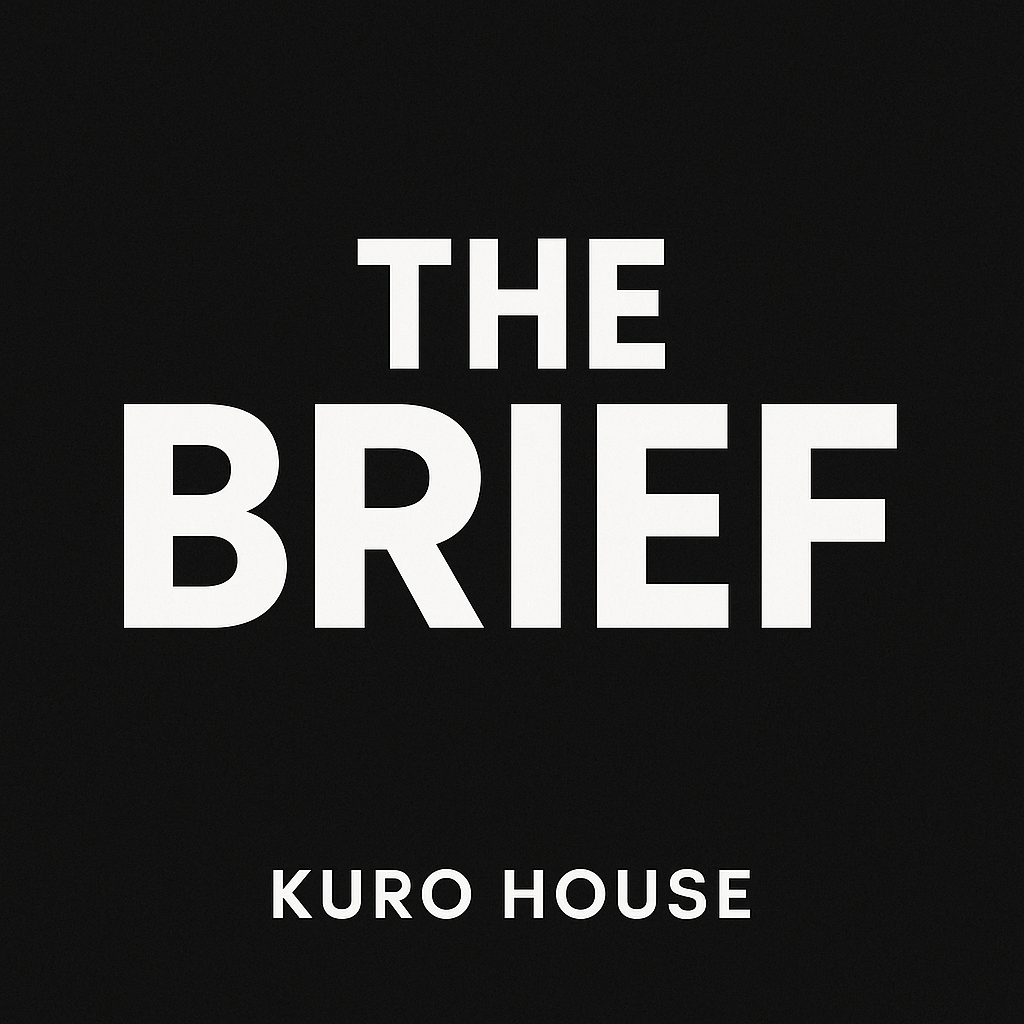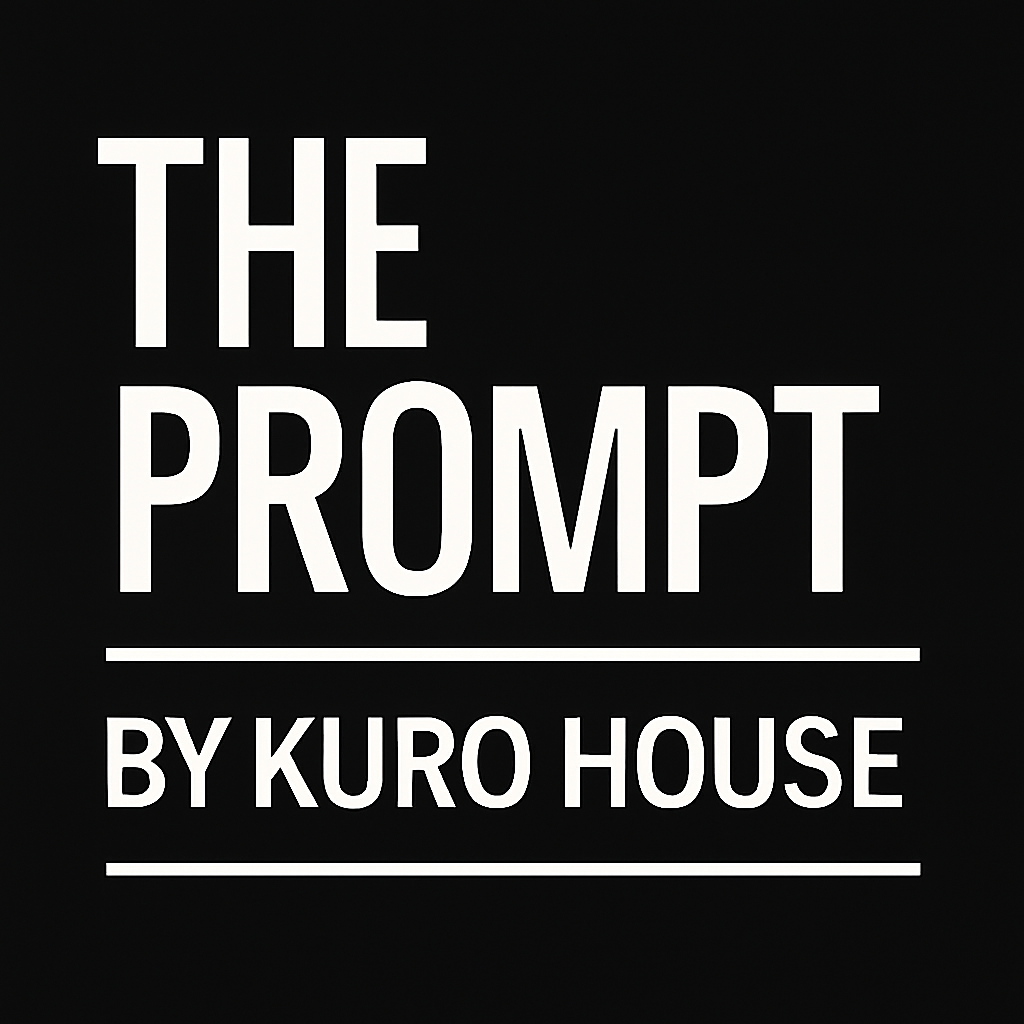Listen To The Show
Transcript
Welcome back to The Brief by Kuro House, where we cut through the noise and bring you the marketing stories that matter most. Today, we’re diving into a mix of platform power plays, industry shakeups, and the evolving relationship between creators and advertisers. Let’s get right to it.
First up, a tragic and headline-dominating story from Adweek: conservative political activist Charlie Kirk was shot and killed while speaking at Utah Valley University. The incident unfolded during a student Q&A session, with news networks scrambling to cover the breaking story. President Donald Trump took to social media to pay tribute, noting Kirk was “loved and admired by ALL, especially me.” The networks responded rapidly: CBS aired two special reports, anchored by Maurice DuBois, with analysis from Robert Costa. CNN’s Boris Sanchez and Brianna Keilar broke the news at 2:50 p.m. ET, joined by senior White House correspondent Kristen Holmes. Fox News had contributor Jason Chaffetz, who was present at the event, calling in live. MSNBC’s Katy Tur delivered the news at 2:57 p.m., while NewsNation and Scripps News mobilized on-the-ground crews for immediate updates. The Associated Press confirmed a suspect is in custody, but the industry is already reflecting on how quickly and comprehensively media organizations mobilize during such high-impact moments, especially when political figures are involved.
Now, let’s talk about Roblox’s meteoric rise—and the growing pains it’s experiencing between its creators and ad sales team. According to Digiday, the recent Roblox Developers Conference in San Jose drew 2,000 creators and marketers, all eager to hear about the platform’s latest moves. Roblox now boasts 111.8 million daily active users, up 41% from last year, and users spend an average of 2.7 hours per day on the platform. Notably, 64% of users are over 13, signaling a shift beyond just a kids’ game. The company paid out over $1 billion to creators in the past year, and top creators are earning serious money—$38.5 million for the top 10, $7 million for the top 100, and $1 million for the top 1,000.
But with big numbers come big tensions. Roblox’s push into programmatic ads, including a partnership with Google, has some creators worried that standard ad formats will overshadow custom, authentic brand integrations. Joe Ferencz of Gamefam, a major creator studio, warns that brands might lose the unique engagement Roblox offers if they opt for generic ads over bespoke experiences. Meanwhile, the platform rolled out its own TikTok-style short-form video feed called Moments, which currently doesn’t serve ads but is designed to boost engagement and discoverability. Safety remains a hot topic, with new age verification requirements and stricter content ratings in response to lawsuits and criticism over child safety. And for creators, there’s good news: Roblox increased its developer exchange rate by 8.5%, meaning more real-world cash for Robux earned. As one creator put it, “It’s a big win for developers.”
Shifting gears, let’s look at a story from Adweek that’s causing quite a stir in ad tech circles. Buyers have discovered they were unknowingly transacting through Epsilon’s SSP, which is owned by Publicis—a rival agency group. This hidden link in the ad tech supply chain raises serious concerns about data transparency and accountability. The fear is that sensitive targeting data could be exposed to competitors, undermining trust in the programmatic ecosystem. The article dives into how reselling inventory can obscure who’s actually handling your data and why marketers need to press for greater transparency from their partners. As the industry continues to consolidate, these “hidden hands” in the supply chain are becoming a major flashpoint, and agencies are being urged to scrutinize every step in their buying process.
From the same Adweek roundup, there’s a broader industry trend worth noting: AI and economic pressures are hollowing out entry-level roles at agencies, eroding the traditional apprentice model. As Audrey Kemp reports, the combination of automation and cost-cutting means fewer opportunities for young talent to learn the ropes. This isn’t just about jobs—it’s about the future leadership pipeline for agencies. Without hands-on experience, the next generation of marketers could miss out on the mentorship and practical learning that have long been the backbone of agency culture.
Finally, let’s touch on a leadership transition that’s making waves. Rebecca Stewart at Adweek highlights the impact of an outgoing CMO who has expanded their league’s global fan base and cemented its place in culture. While the article doesn’t specify which league, it underscores how strategic marketing leadership can drive not just brand growth, but cultural relevance—something every marketer aspires to. As the torch passes, the question is how new leadership will sustain that momentum and continue to innovate in a rapidly changing landscape.
That’s all for today’s edition of The Brief. Whether it’s the fast-moving world of digital platforms, the evolving ad tech landscape, or the future of agency talent, these stories remind us that marketing is always in motion—and so are the challenges and opportunities. Thanks for listening, and stay sharp out there. We’ll be back tomorrow with more insights to keep you ahead of the curve.

